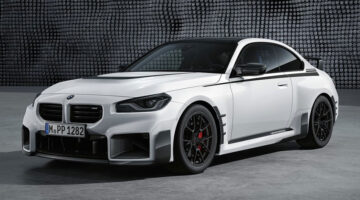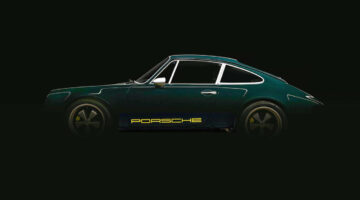We take a look at the Porsche 908/80. No, the Porsche 936. No, the Porsche 908/80. No, it’s a model. No…
[Not a valid template]Amidst 24 Hours of Le Mans ‘most successful’ stories you’ll find your Porsches (courtesy of 16 victories at La Sarthe between 1970 and 1998), your Audis (thanks to 12 wins in 14 years), your Tom Kristensens (record holder for most wins with nine, 1997-2013) and your Jacky Ickxs (former record holder with six, 1969-1982).
A less celebrated, yet no less deserved, member of this list is a driver who never won at Le Mans at all, despite making seven starts between 1969 and 1981. As team principal to his eponymous sportscar team though, Reinhold Joest has fielded works teams for both Porsche and Audi, and amassed a staggering 14 victories at the 24 Hours of Le Mans: that’s the same as Alfa Romeo, Ford, Matra-Simca and Peugeot combined.
These 14 illustrious machines deserve their rightful place in the history books: Audi’s victory for the R10 TDI in 2006 was the first for a diesel sportscar at Le Mans; it’s 2012 win with the R18 e-tron quattro was the first for a hybrid car at La Sarthe; the team’s 1997 victory with the WSC-95 netted a certain Dane his first Le Mans win. And yet, our focus is none of these. Indeed, the 908/80 you see here – or 1/12 scale exact replica, I should say – never made it to victory lane, though that’s not to say it didn’t raise eyebrows.
Indeed, the ominously titled 908/80 stood out on the 1980 24 Hours of Le Mans’ entry list. Though heavily modified, the Equipe Liqui Moly Martini Racing-entered 908 was already well over a decade old even then, establishing itself early on as a customer team special alongside the demonically fast works 917s (the sportscar that got the victory ball rolling for Porsche at Le Mans in 1970-1971). Indeed, Joest’s own model – acquired in 1971 and, devoid of sponsors, painted orange and blue – had already been in service since 1969, albeit with some major developments along the way.
An Audi/Porsche/Volkswagen dealer as well as an endurance specialist, Joest was one of several customer teams running the 908/3 with manufacturer support during the early 1970s. It was a good system, a principal proved by the already reliable 908 – by now an aerodynamically optimised longtail version – when it netted Joest a podium at Le Mans in 1972, though the 917/20 Pink Pig’s appearance one year earlier traditionally overshadows this result.
For Porsche however, the headline act was its new 936, built to compete in the recently established World Championship for Makes and bring both Le Mans and arch-rivals Ferrari to their respective knees. Victory first time out confirmed the new model’s pace. Two successive victories at La Sarthe rubberstamped it, and customer 908s began drawing ‘inspiration’ with each passing year. Indeed, as well as 917/10-esque rear fins (adopted from those being used on Porsche’s Can-Am contender at the time), by 1976 Joest’s 908/3 was also running Porsche’s devastatingly effective 2.14-litre twin turbo flat-six, sold by the factory for a reasonable $35,000ish. Success in the Group 5 sportscar campaign came thick and fast.
And so the cycle continued until a particularly dominant victory by the Renault Alpine A442B in 1978 – coupled with Porsche’s enthusiasm to push its 935 model – saw the 936’s momentum drop. Resilient as ever, this didn’t stop Joest acquiring 936 components and further developing his by now nearly ten year old 908/3. Again, specifically for Le Mans. Naming rights meant Joest’s near replica of a 1977MY 936 was instead entered for the event as the 908/80 (1980, 908/80, get it?), a pseudonym that fooled nobody. After 24 hours of fraught racing, Joest and teammate Ickx – who would take his final two Le Mans victories in 1981 and 1982 – finished second, sandwiched between the Rondeau M379s. It also marked Joest’s best ever result at La Sarthe as a driver.
The 908/80 – later remodelled the 936J – would continue racing in the newly established Deutsche Rennsport Meisterschaft (a precursor to the DTM) in 1982, taking four podium finishes and one victory. It proved a swan song campaign though, and the former orange and blue machine would end its racing career in the reflective red and white colours of the Vegla Racing Team. Shortly after the near 15-year old car pulled onto pitroad for the final time, Joest doing likewise one year earlier after taking victory at the Kylami 9 Hours alongside Jochen Mass.
Joest Racing’s formidable record at Le Mans includes two separate back-to-back victories as a team entrant in 1984-1985 (with the Porsche 956) and 1996-1997 (with the Porsche WSC-95). Indeed, since 2006, the team has lost Le Mans only once, and an involuntary three-year hiatus (following Audi’s decision to pull its R8 programme and concentrate on the new R10) didn’t stop team Joest providing technical support for Bentley’s 2003 success with the Speed 8.
Still, ask Joest about his favourite Le Mans entry, and don’t be surprised if rather than a stallion he picks the mule.
– FULL GALLERY OF SHOTS AVAILABLE HERE – CLICK –
– Our thanks to Dragon Racing



